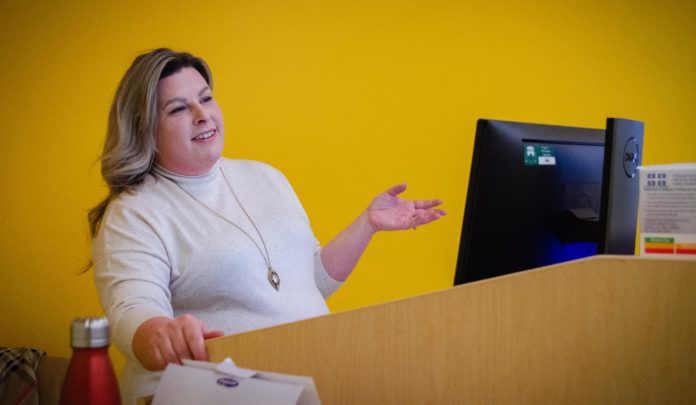

Jocelyn Elsdon, a journalism professor at St. Thomas University, says misinformation spreads faster than well-researched information and was the subject of a recent lecture by the Canadian Association of Journalists held at STU.
“It is like a wildfire going out of control,” said Elsdon.
The workshop titled “Misinfo 101: How to identify and report on misinformation,” ” touched on how to spot misinformation, what tools journalists should use to fact-check and the ethics of reporting on it.
Elsdon, who is also a senior producer at CBC New Brunswick, delivered the lecture on Nov. 17.
She said misinformation has many dangers like social chaos, financial loss, confusion, bad decisions and, at its worst, violence.
Elsdon outlined in her lecture that while misinformation is not a new phenomenon, social media often makes the situation worse.
“Social media companies are disincentivized to prevent misinformation because of their revenue model,” she said. “Companies such as Facebook are motivated to keep users sharing more and more content … the more users can consume, the more these companies make from advertisements.”
Elsdon offered up resources for journalists and the general public to help fact-check misinformation. She suggested tools like reverse image search, InVID, WeVerify, CrowdTangle and the Wayback Machine. These tools verify the origin of photos and videos and look at previous versions of a website.
She also tackled the ethical question of whether or not a journalist should report on misinformation.
First Draft, a non-profit organization that provides fact-checking and ethical guidance, suggests that professional media does not cover misinformation to avoid further spreading it. But if misinformation has to be reported on, Elsdon said it should be done with empathy and precision.
“If we think about it, as tumour tissue, or something that’s going to grow, we keep it contained. We exercise it and treat it before.”
Karissa Donkin, a journalist in CBC’s Atlantic investigative unit, said it is important to analyze case-by-case whether or not to address misinformation.
“You do not want to amplify misinformation and get more oxygenated, but I think it’s also our role to tell the public what’s real and what’s not,” she said.
Donkin said journalists and everyday people should think critically about their information sources and research them to make sure they are reliable, especially if they are coming from social media.
“If somebody posts in a tweet, for example, you start asking yourself, ‘how does this person know that? And what could their motivation for posting this be?’” she said.
Callum MacDonald, a third-year student at STU, said he believes fake news is prevalent on the internet.
He said teaching digital literacy, especially to older generations, is extremely important and journalists have to do good research to correctly inform those populations.
“They didn’t grow up with [social media], so we take it for granted,” he said.
